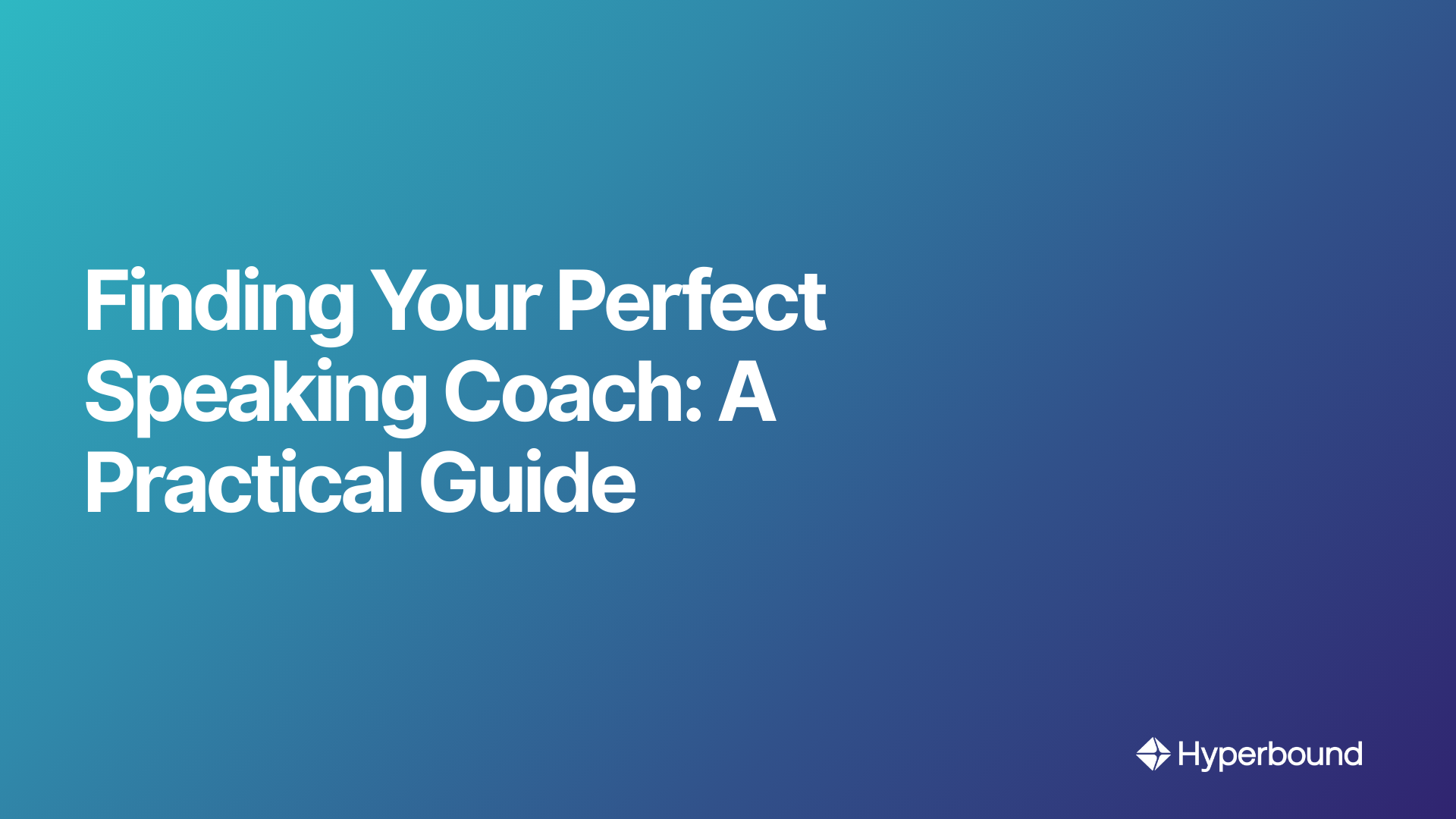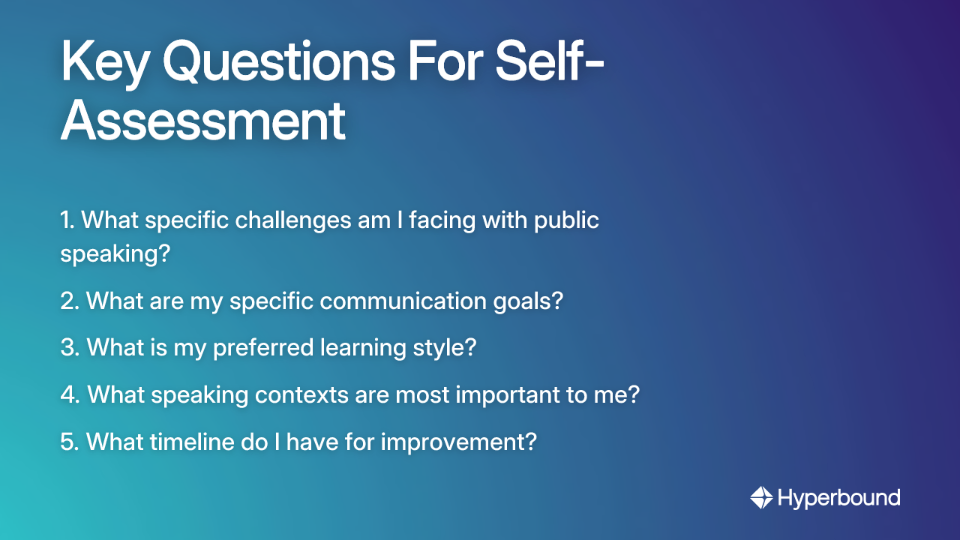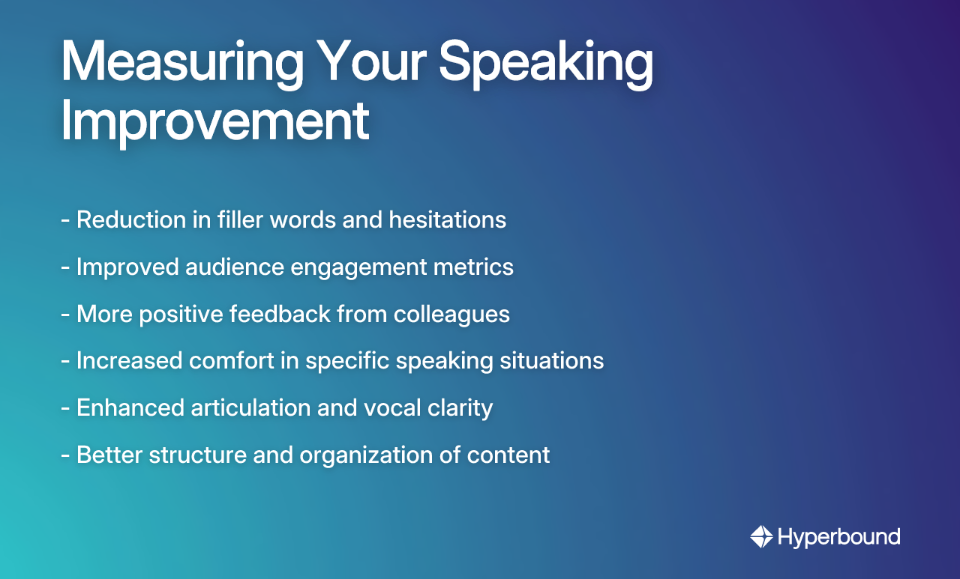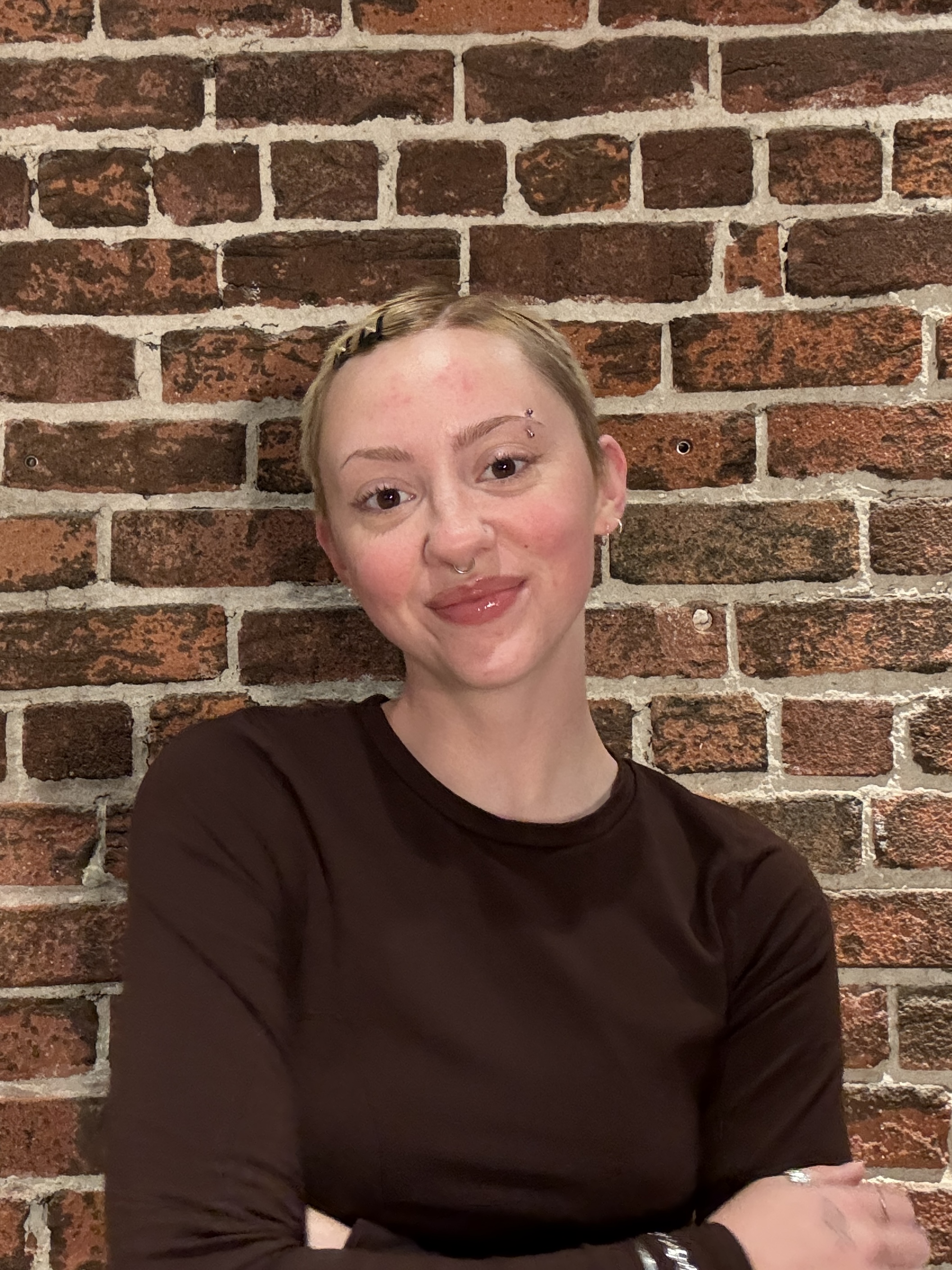
You've decided it's time to improve your public speaking skills. But as you start researching options, you quickly become overwhelmed. There are countless coaches online, each promising to transform you into a powerful orator. Toastmasters groups might seem too general for your specific needs. YouTube videos offer tips but no personalized feedback.
"It's hard to tell who is legit," you think to yourself, scrolling through website after website of smiling coaches with impressive-sounding credentials. You need "something more focused and personalized" than generic advice—someone who can address your unique challenges and help you reach your specific goals.
You're not alone in this frustration. Many professionals recognize that "if I didn't improve my public speaking skills, I'd never be able to reach my full potential in my career." Yet finding the right guide for this journey can be just as challenging as public speaking itself.
This practical guide will help you navigate the complex landscape of speaking coaches, understand the different types of professionals available to help you, and provide concrete steps to find someone who can truly elevate your communication skills.
Understanding Your Specific Needs: Beyond Generic Advice
Before you begin your search for a coach, take time to identify exactly what you want to improve. This self-assessment is crucial for finding the right match for your needs.
Ask yourself:
- What specific challenges am I facing? Is it physical symptoms of anxiety where "my heart would race, my voice would shake, and I'd forget half the things I wanted to say"? Or perhaps you struggle with organizing your thoughts, using filler words, or projecting authority through your vocal image?
- What are my specific goals? Do you want to excel in a particular context (board presentations, sales pitches, team meetings)? Are you trying to "improve my diction, enrich my everyday vocabulary and eventually speak more eloquently"?
- What is my learning style? Do you thrive with direct feedback? Do you need practice opportunities? Do you prefer structured exercises or a more exploratory approach?
Your answers will help determine which type of professional will serve you best.

Decoding the Professionals: Understanding Different Types of Coaches
Not all speaking coaches offer the same expertise. Understanding the distinctions will help you narrow your search to professionals who specialize in addressing your specific needs.
Speech-Language Pathologists (SLPs)
Focus: Clinical diagnosis and treatment of communication disorders and voice issues.
Best for: People with specific speech impediments, voice disorders, or clinical concerns like stuttering or articulation problems.
Credentials to look for: Certification from the American Speech-Language-Hearing Association (ASHA).
What they offer: Structured therapy programs, specific diction exercises, and evidence-based techniques to address clinical voice and speech concerns.
Voice Coaches
Focus: Improving the quality and performance aspects of your voice.
Best for: Those looking to enhance vocal qualities like projection, tone, resonance, and elocution.
What they offer: Techniques to improve volume and fullness of voice, exercises for better articulation, and methods to develop a more commanding vocal presence.
Many voice coaches use specific techniques like the Mirror Recitation Tool (practicing in front of a mirror to observe facial movements during speech) or the "Out-Shout the Highway" exercise (practicing projection while speaking over background noise).
Public Speaking Coaches
Focus: A holistic approach to communication effectiveness.
Best for: Professionals seeking to improve their overall presentation skills, body language, audience engagement, and message delivery.
What they offer: Strategies for structuring content, techniques for engaging audiences, methods to manage speech anxiety, and feedback on your delivery techniques.
Many public speaking coaches incorporate specialized exercises like Pebbles in Mouth (an ancient exercise used by Demosthenes to improve articulation) or Incline and Running Recitation (speaking while physically active to build breath control).
Communication Skills Trainers
Focus: Broader communication effectiveness across various contexts.
Best for: Those looking to improve interpersonal communication, not just formal presentations.
What they offer: Techniques for effective listening, conversational skills, impromptu speaking, and adapting communication style to different audiences.
Vetting a Speaking Coach: Credentials, Questions, and Red Flags
Once you've identified which type of professional best matches your needs, it's time to vet potential coaches. Here's how to separate the truly qualified professionals from those who may not deliver the results you seek.
Look for Legitimate Credentials
While there's no single certification that guarantees quality, these credentials add credibility:
- For SLPs: Certification from the American Speech-Language-Hearing Association
- For coaches: Credentials from established organizations like the International Coaching Federation
- For all professionals: Relevant education, specialized training, and verifiable experience
Beyond formal credentials, look for evidence of real-world experience, client testimonials, and a track record of results with clients similar to you.
Essential Questions to Ask Potential Coaches
When interviewing potential coaches, these questions will help you assess their fit:
- "Do you customize your lessons for each student? How?" This directly addresses the need for personalized coaching versus generic approaches.
- "What is your specific expertise related to my goals?" Their answer should demonstrate a clear understanding of your challenges and specialized knowledge to address them.
- "Can you describe your coaching methodology?" Listen for specific techniques rather than vague promises. Do they mention tools like Hyperbound for AI-powered practice or live practice workshops?
- "How do you measure progress?" Good coaches have concrete ways to track improvement.
- "What is your availability for feedback between sessions?" The best coaching relationships often include support beyond scheduled meetings.
- "What timeline do you envision for reaching my goals?" Be wary of promises that seem too good to be true.
Practical Considerations
Also ask about:
- Session format: In-person vs. virtual, length, frequency
- Pricing structure: Per session, packages, additional costs
- Cancellation policies and scheduling flexibility
- Recording options: Will sessions be recorded for your review?
Red Flags to Watch For
Be cautious of coaches who:
- Make unrealistic promises like "eliminate all nervousness in one session"
- Can't explain their methodology in concrete terms
- Have no testimonials or references from past clients
- Seem more interested in selling than understanding your specific needs
- Don't demonstrate good communication skills themselves during your initial interactions
- Offer only generic advice rather than tailored strategies

Maximizing Your Coaching Experience
Once you've found a qualified coach who matches your needs, these strategies will help you get the most value from the relationship:
Be an Active Participant
The most successful clients:
- Do the homework: Practice assigned diction exercises, mirror recitation, or other techniques between sessions
- Record themselves: Review your own performances objectively
- Come prepared: Arrive at each session with specific questions and goals
- Provide feedback: Tell your coach what's working and what isn't
- Apply learnings immediately: Look for opportunities to practice in real-world situations
Complement Coaching with Additional Resources
While one-on-one coaching provides personalized guidance, you can accelerate your progress by:
- Joining supportive communities: Toastmasters can be a valuable complement to private coaching, offering regular practice opportunities
- Using technology: AI coaching platforms like Hyperbound provide on-demand, realistic practice environments to hone your skills between sessions
- Reading and watching: Books, videos, and podcasts can reinforce concepts between sessions
- Attending live practice workshops: These offer opportunities to implement techniques in supportive environments
Establish Clear Metrics for Success
Work with your coach to define concrete measures of improvement:

- Reduction in filler words
- Improved audience engagement metrics
- Better feedback from colleagues
- Increased comfort with specific speaking situations
- Enhanced articulation and vocal clarity
Signs It's Time to Find a New Coach
Not every coaching relationship is a perfect match. Consider seeking a different coach if:
- You don't see measurable progress after a reasonable time
- The coach continues to use generic approaches despite your specific needs
- You feel more anxious or less confident after sessions
- The coach cannot adapt their methods to your learning style
- Communication between sessions is consistently poor
Conclusion: The Right Coach Can Transform Your Speaking Journey
Finding the perfect speaking coach takes effort, but the investment pays tremendous dividends. When you find a professional who truly understands your needs—whether that's an SLP who can help with clinical speech concerns, a voice coach who can enhance your vocal image and elocution, or a public speaking coach who can refine your presentation techniques and body language—you gain more than just improved communication skills.
You gain a partner in your professional development who can help you overcome the obstacles that have been holding you back. As one successful coaching client shared, "Working with the right coach transformed my relationship with public speaking. What was once a source of anxiety is now one of my greatest professional assets."
With the right guidance, you too can develop the confidence and skills to communicate effectively in any situation. The racing heart, shaking voice, and forgotten words can become a thing of the past. In their place, you'll find the ability to express yourself with clarity, confidence, and impact—opening doors to new opportunities in your career and beyond.
Remember that the goal isn't to become someone else's version of a perfect speaker, but rather to become the most effective communicator you can be while maintaining your authentic voice. The right coach will help you not by imposing a standardized approach, but by bringing out your unique strengths and helping you develop a style that works for you.
Take the time to find that perfect match, and you'll be investing not just in better speaking skills, but in your entire professional future.
Frequently Asked Questions
What is the difference between a voice coach and a public speaking coach?
A voice coach focuses specifically on improving the technical aspects of your voice, such as tone, projection, and articulation, while a public speaking coach takes a more holistic approach to improve overall presentation skills, including content structure, body language, and audience engagement. You would see a voice coach to develop a more commanding or pleasant vocal quality. In contrast, you would hire a public speaking coach to help you craft and deliver compelling presentations, manage stage fright, and connect effectively with your audience. For clinical issues like a stutter, a Speech-Language Pathologist (SLP) is the appropriate professional.
How much does a speaking coach typically cost?
The cost of a speaking coach can vary widely, typically ranging from $100 to over $500 per hour. Pricing depends on the coach's experience, location, and area of specialization. Many coaches offer package deals for a series of sessions, which can provide better value. It's important to view this as an investment in your professional development and inquire about pricing structures during your initial consultation.
How long does it take to see improvement with a speaking coach?
You can often see noticeable improvements in specific areas within just a few sessions, but significant, lasting change typically requires a commitment of at least three to six months. The timeline depends heavily on your specific goals, the frequency of your sessions, and how consistently you practice between them. A good coach will work with you to set realistic expectations and establish clear metrics for measuring progress along the way.
How do I know if I need a public speaking coach?
You likely need a public speaking coach if you feel that your communication skills are holding you back professionally, you experience significant anxiety when speaking, or you want to elevate your presentations from good to great but don't know how. If you struggle to organize your thoughts, use excessive filler words, receive feedback that your message isn't landing, or simply want to speak with more confidence and authority, a coach can provide the personalized feedback and structured guidance needed to overcome these challenges.
Are online speaking coaches as effective as in-person ones?
Yes, online speaking coaches can be just as effective as in-person coaches, and they often offer more flexibility and a wider selection of specialists. The effectiveness of coaching depends more on the coach's skill and your rapport with them than the format. Virtual sessions allow for easy recording for later review, and many coaches are highly experienced in using technology to provide detailed feedback on everything from vocal tone to digital presence.
Can I improve my public speaking with just Toastmasters or free online resources?
While resources like Toastmasters and YouTube videos are valuable for practice and general tips, they cannot replace the personalized, expert feedback that a dedicated coach provides. A coach identifies your specific challenges and creates a tailored program to address them, which is something generic advice cannot do. Toastmasters offers great practice opportunities but lacks the one-on-one expert guidance to correct deep-seated habits. Using these resources in conjunction with a coach is an excellent strategy to accelerate your progress.

Book a demo with Hyperbound
.png)













